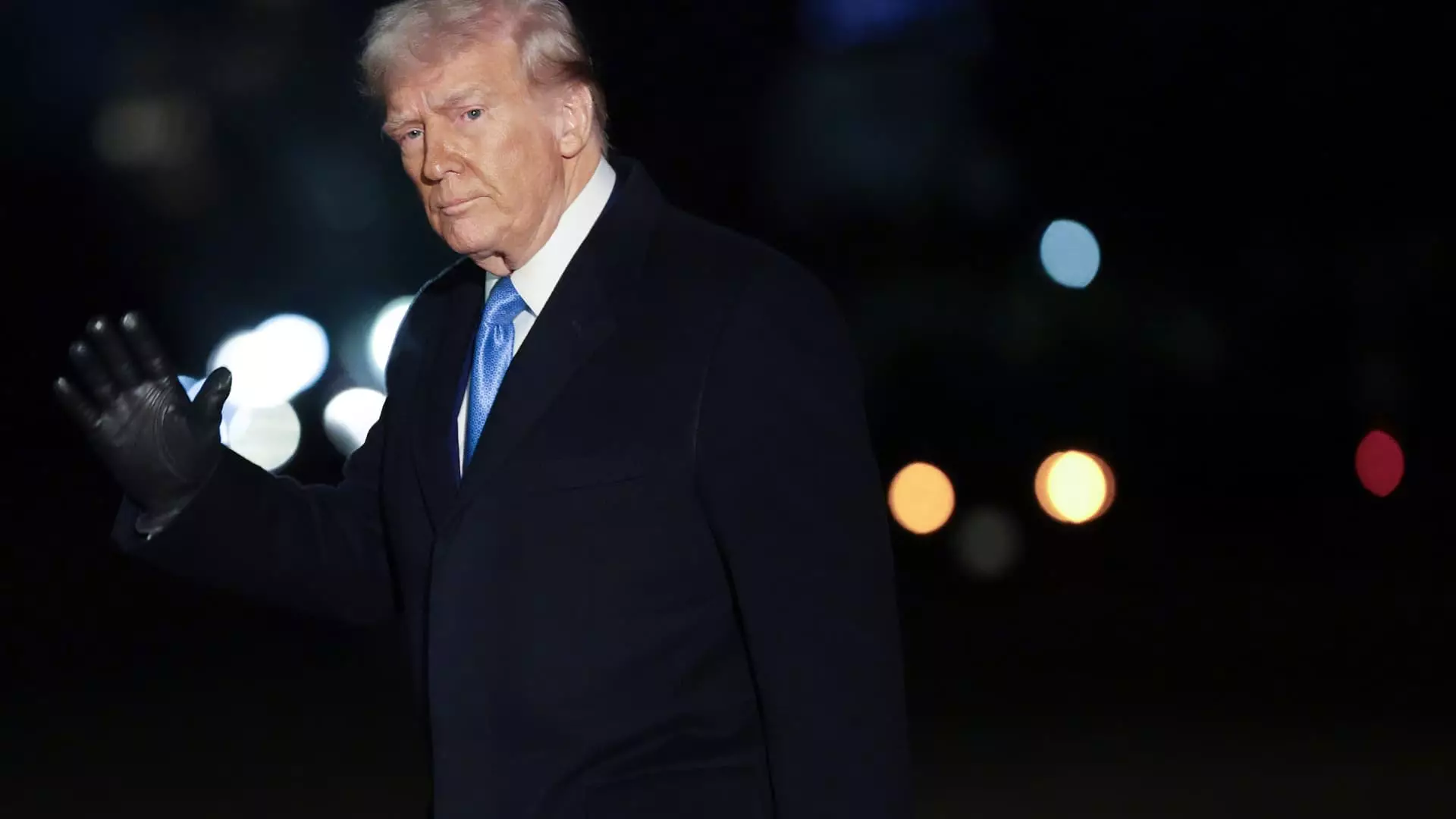In a significant legal development, a federal judge in Maryland has intervened to temporarily halt President Donald Trump’s attempts to curtail diversity, equity, and inclusion (DEI) initiatives across federal agencies and among businesses that contract with the government. This pivotal decision reflects ongoing tensions surrounding free speech and discrimination policies in the United States.
U.S. District Judge Adam Abelson articulated that the efforts put forth by the Trump administration to dismantle DEI programs appear to violate the First Amendment rights of individuals and organizations. By engaging in a vigorous examination, Abelson determined that the president’s directives, alongside an urgent call for the Department of Justice to investigate corporations embracing DEI policies, likely infringe upon constitutionally protected speech. This ruling is a noteworthy counterattack against what some characterize as an aggressive push to eliminate inclusivity in government practices and private-sector operations.
The key positions articulated by Abelson included a focus on the “irreparable harms” faced by plaintiffs—the City of Baltimore and several advocacy groups—which argue that the Trump administration’s directives have created a chilling atmosphere, stifling free speech and expression. The judge referenced historical context by asserting that the efforts to promote inclusion have been broadly considered legal for decades. This perspective underscores the long-standing evolution of DEI initiatives, especially heightened following the nationwide protests against systemic racism and police violence in 2020.
While Judge Abelson’s ruling provides temporary relief, the ruling also invites questions about its implications for previous actions undertaken by the Trump administration. The administration had already shuttered DEI offices in several federal agencies and terminated staff involved in diversity initiatives. The scope of the court’s ruling remains ambiguous, particularly regarding how it will influence these prior decisions. The White House’s silence in the wake of this ruling leaves room for speculation regarding potential appeals or further legal maneuvers.
Organizations advocating for DEI practices, such as Democracy Forward, heralded the ruling as a landmark victory for civil rights and free speech. President Skye Perryman articulated that Trump’s orders crossed constitutional boundaries by unduly interfering with free expression. This sentiment reinforces the broader national discourse regarding the role of DEI in fostering an environment conducive to equality and representation.
The rulings and discussions surrounding DEI policies are inherently tied to the social fabric of the nation, responding to decades of racial inequality and systemic barriers facing marginalized groups. Advocates assert that DEI is more than just a political talking point; rather, it is an essential framework for repairing societal fractures that continue to disadvantage women, people of color, and other marginalized populations.
Opponents of DEI, including Trump and some conservative factions, claim that these initiatives perpetuate reverse discrimination and muddy the waters of meritocracy. This tension has intensified political divisions, particularly in the aftermath of major social movements that demanded accountability and reform.
Judge Abelson’s ruling introduces a critical checkpoint in this turbulent dialogue by reinforcing the importance of protecting speech and ideas. The court’s position suggests that any efforts to regulate or obliterate DEI initiatives must be approached with caution and clarity to avoid infringing upon constitutional rights. The ambiguity in the Trump administration’s definitions of DEI relative to lawful discrimination highlights the urgency for clear legislative guidelines that delineate acceptable practices in workplace inclusivity.
As the case progresses and more legal battles loom on the horizon, the intersection of free speech rights and the necessity for diversity initiatives will continue to be a battleground for advocacy and legislative change. The Maryland ruling acts as a temporary safeguard against sweeping policy modifications while emphasizing the profound implications of inclusivity in American society. Both sides of this contentious issue will undoubtedly remain active, but the court’s decision serves as a vital reminder of the constitutional foundations supporting diverse voices in the public sphere.


Leave a Reply